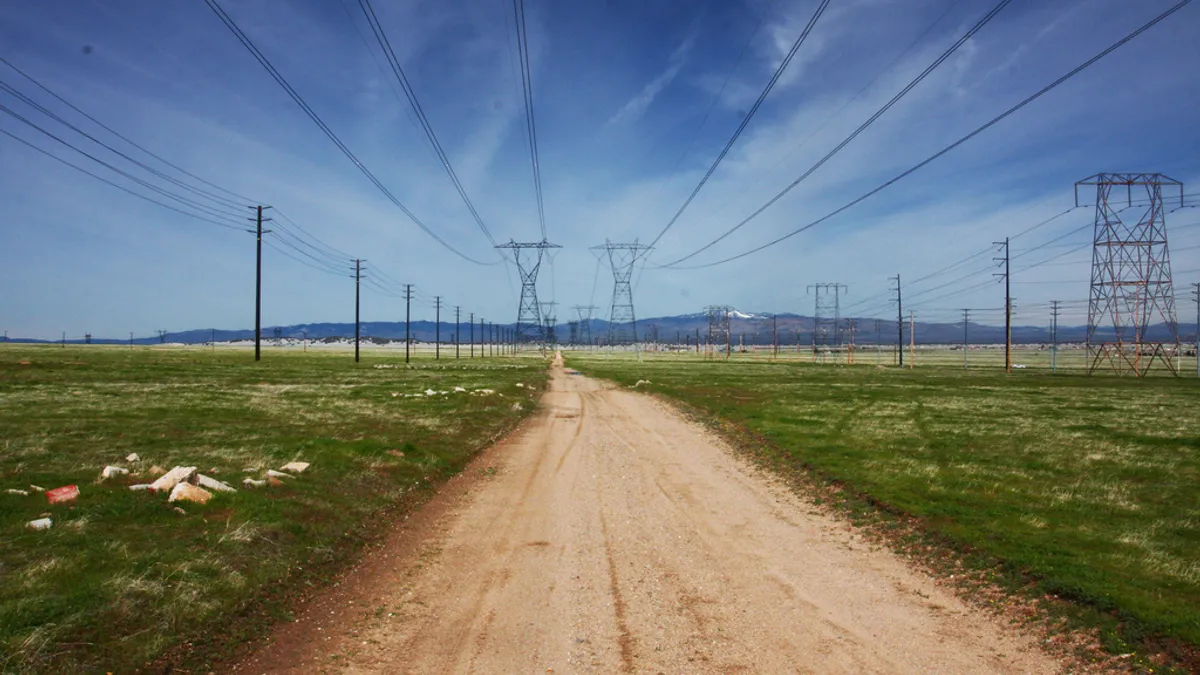Dive Brief:
-
California investor-owned utilities are pushing back against a proposal from state regulators that would open up confidentiality rules around the state’s renewable portfolio standard (RPS) program, saying the changes could lead to "harmful market manipulation."
-
The potential new rules, detailed in a California Public Utilities Commission (CPUC) staff proposal in late February, would provide for earlier public release of certain information on renewables contracts — including their costs — to provide customers with information on how their electricity providers are meeting RPS obligations.
-
The CPUC initially adopted confidentiality rules for electric procurement in 2006 — but changes to both the RPS program and the renewables market itself warrant more transparency, the commission’s staff said in the proposal.
Dive Insight:
California’s RPS program was established in 2002 and has since been tweaked and modified dozens of times. In recent years, state legislation has accelerated the program’s targets — including Senate Bill 100, signed by then California Gov. Jerry Brown in 2018, which sets the state on a path to supplying all of its electricity from renewable and zero-carbon resources by 2045.
The CPUC began reconsidering the confidentiality of RPS information in 2013, when it asked stakeholders to weigh in on a staff proposal that clarified those rules. However, the effort didn’t take off since the agency shifted its focus to implementing legislation that modified the program and accelerated renewables targets.
Typically, California utilities request approval of new renewables contracts by filing an advice letter with the commission, and regulators either approve or deny the requests by issuing resolutions. Under current protocols, public versions of the resolutions do not include the price of the contract — instead, that information is made public three years after the facility comes online.
With the new proposal, however, the price of a contract would be disclosed either along with the utility’s advice letter or in the commission’s resolution. Resolutions are generally drafted after project negotiations have concluded, the CPUC’s energy division said, and so "there is no danger to the utility’s position on that project from public disclosure of the price."
"Disclosing the contract price in the draft resolution, rather than years later, will provide market participants with more current information, thus promoting competition and increasing value to ratepayers," according to the proposal.
Similarly, load-serving entities who request that their projects be approved by submitting a more formal application rather than an advice letter would need to disclose contract prices, other costs and rate impacts in those filings.
The staff’s proposal is "ill-conceived," "unlawful," and would "roll back protections for RPS electric procurement information that have been in place and operating effectively for over a decade," Pacific Gas & Electric, San Diego Gas & Electric and Southern California Edison contended in joint comments filed with the commission Monday. Disclosing contract information could discourage investments in renewables projects, which would also increase the costs that eventually fall on ratepayers, the utilities said.
The investor-owned utilities are concerned that making information on near-term pricing, net open positions and the status of projects publicly available would give generators an advantage when negotiating prices with them. Bidders could artificially reduce prices in renewables solicitations, they said, and then try and re-negotiate them later — which could create delays and raise costs for ratepayers down the line.
Similarly, disclosing information on project status and obstacles faced by specific projects could rub developers the wrong way and push them to turn to projects in other states, chilling California’s renewables market, according to the utilities.
Some renewable industry advocates also pushed back against the proposal. In joint comments, the Solar Energy Industries Association and Large-Scale Solar Association said the changes should be rejected because there’s no indication that current confidentiality protocols have hindered the renewables market in any way.
And the California caucus of the American Wind Energy Association (AWEA) said in its filing that transparency around RPS information already exists through public disclosures from community choice aggregators and through the integrated resource planning process, adding that "AWEA-California does not subscribe to the notion that there is a transparency problem that needs to be fixed."














